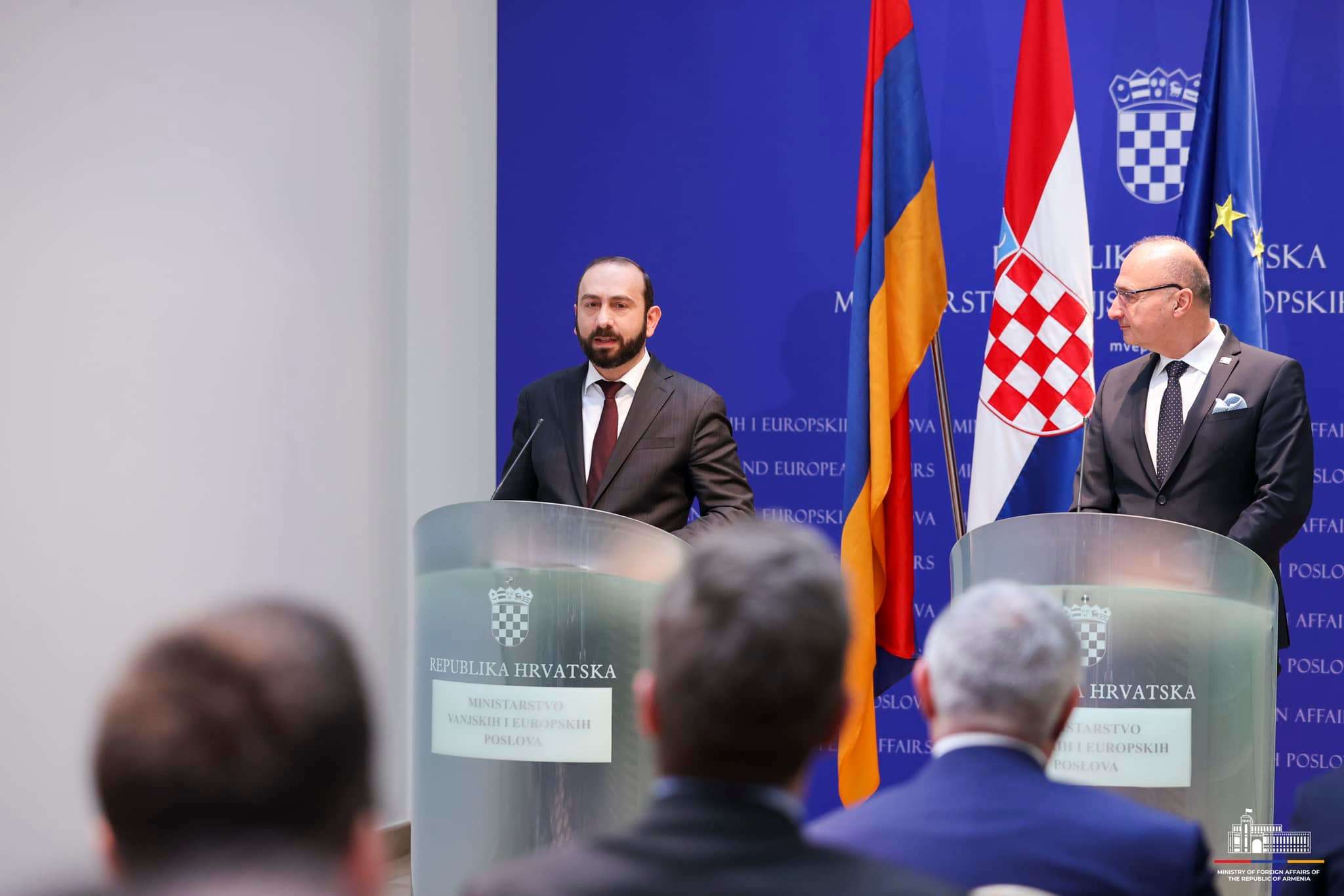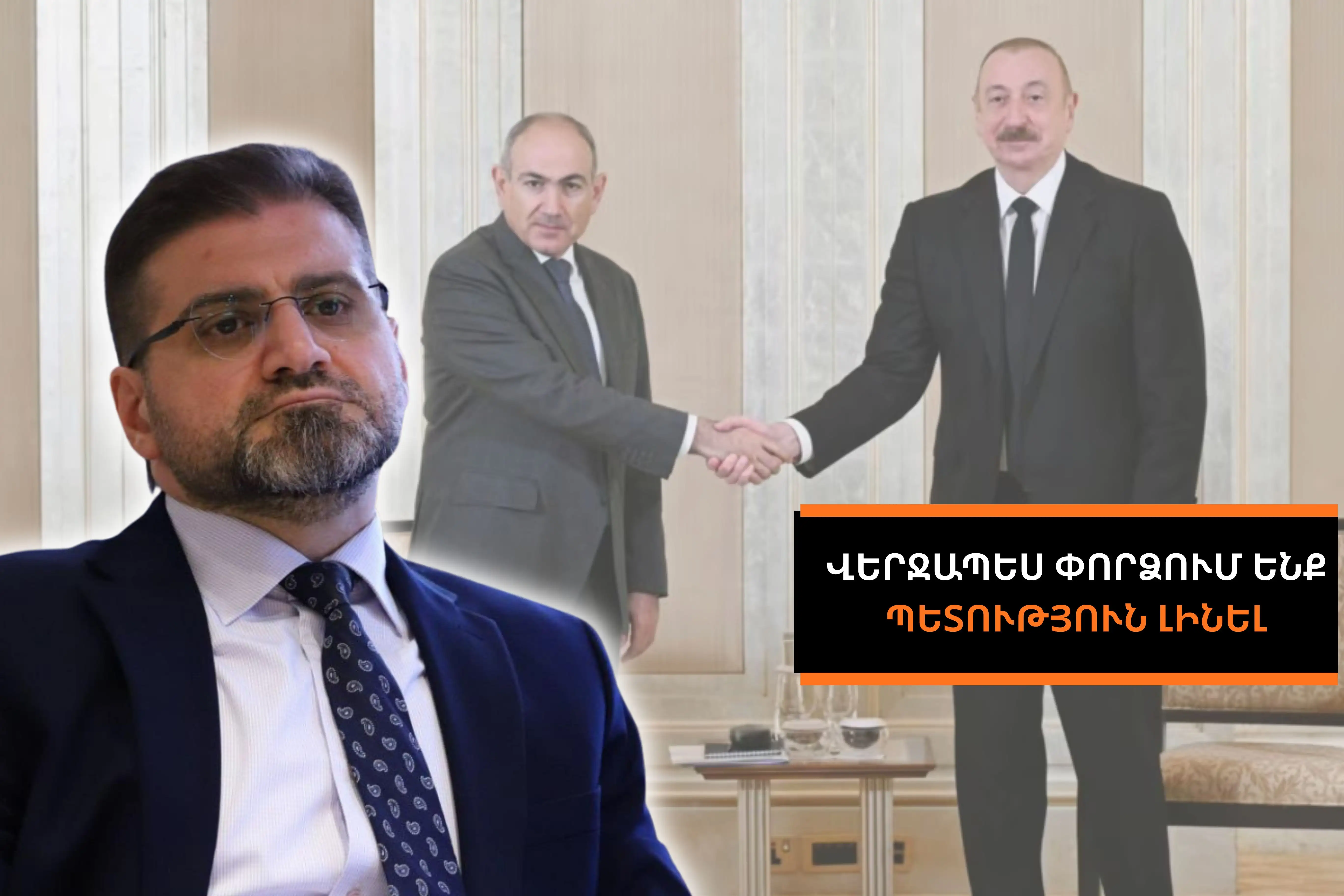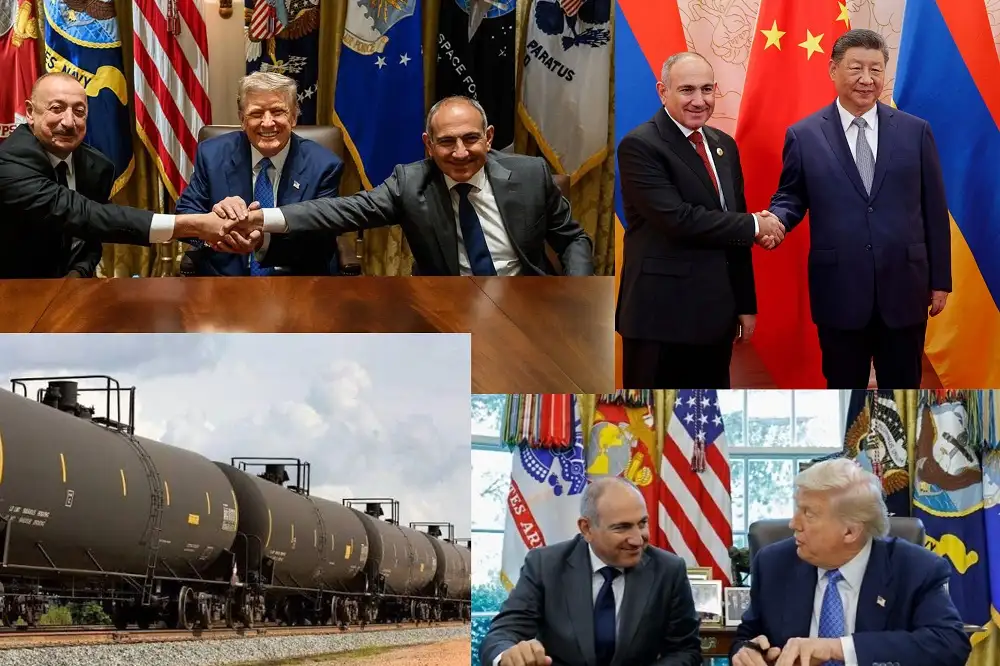Armenian Foreign Minister Ararat Mirzoyan held a joint press conference with Croatian Foreign Minister Gordan Grlic Radman.
"During our discussions today, we touched upon several issues on the bilateral agenda and opportunities for the development of cooperation in various fields, including economy, culture, information technology, tourism, and education. Along with the development of political dialogue, there is huge unused potential in the economic sphere. During Minister Radman's visit in February last year, the business forum held in Yerevan gained special importance, and we are interested in promoting and expanding trade and economic cooperation aimed at recording tangible results," said Mirzoyan.
He said, "Today, we also discussed the current processes and the steps to strengthen the RA-EU partnership further. The aspiration of our citizens to further deepen these relations is based on the common values that our citizens share, promoted in Armenia, Croatia, and the European Union, especially in the domain of democracy, protection of human rights, and other fundamental principles. At the same time, our commitment to expanding the RA-EU partnership stems from the vision of a better and safer environment for our citizens. Thus, with my Croatian colleague, we have considered the entire scope of Armenia-EU relations, which includes our democratic reform agenda, people-to-people contacts, visa liberalization dialogue, economic cooperation, and security issues. In this context, I emphasize that the Armenia-EU partnership is expanding in new directions, namely, the EU monitoring mission in Armenia and the dialogue on security issues.
Today, we also had the opportunity to address cooperation issues on multilateral platforms and cooperation within the framework of those international organizations where Armenia and Croatia already have or will benefit from closer collaboration.
Dear Colleagues,
Today, we exchanged ideas on the topics of international and regional security. I informed my colleague in detail about the situation in the South Caucasus. As mentioned earlier, we had the opportunity to discuss Armenia's vision of stability and peace in the region, efforts to overcome challenges, and the development of regional ties. Unfortunately, the rhetoric and statements of high-ranking Azerbaijani officials continue to challenge the international law-based order, Armenia's territorial integrity and sovereignty, and thus the prospects for lasting peace in the region.
Our partners interested in stability in the South Caucasus share the same approach: peace requires unwavering commitment and genuine interest in long-term solutions. Armenia's position is apparent, based on well-known principles and agreements. Countries must recognize each other's territorial integrity without any ambiguity. The peace treaty should provide a clear basis for the further delimitation process, which we believe should be carried out by the Alma-Ata Declaration and based on the most recent and legitimate maps of the Soviet Union.
Channels that can be unblocked in the region and communications, economic, and transport infrastructure can also promote sustainable peace in the area. We believe that all infrastructure that is to be unblocked should be unblocked by the sovereignty of those countries—jurisdiction—and by the principles of equality and reciprocity.
Moreover, to promote this idea of peace and interconnectedness, the Government of the Republic of Armenia came up with the "Crossroads of Peace" initiative, which, as I said, aims to increase the interconnectedness in the region and unblock the infrastructure.




















